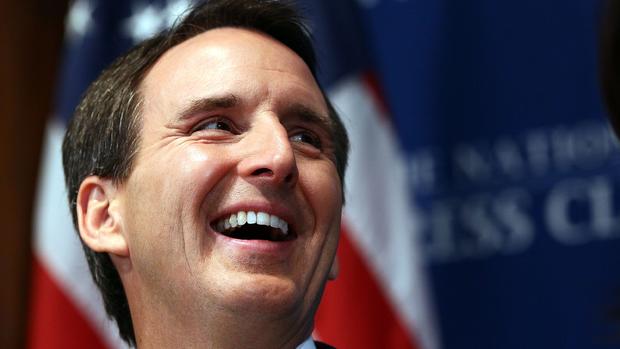Pawlenty: Minnesota shutdown could be a good thing
Thousands of workers face layoffs, road construction is at a standstill and state parks have closed in Minnesota after the state shut down Thursday night because of a political stalemate over the budget. But former Minnesota Gov. Tim Pawlenty, now a Republican presidential candidate, said the government shutdown could ultimately have a positive impact.
"There's going to be a variety of near-term impacts but the the longer-term goal is most important here," Pawlenty said, referring to government living within its means, KSTP reports.
Pawlenty was governor of Minnesota for eight years until his second term ended in January. In 2005, he presided over a nine-day shutdown, but he speculated last night that the state could have benefited from a longer shutdown.
"I think we would've gotten a better deal had we allowed that to continue for a while," he said from the Minneapolis-St. Paul International airport. To end the shutdown, Pawlenty in 2005 signed a budget deal that included a cigarette tax, or "health impact fee."
Pawlenty blamed Democrats for both the current shutdown and the 2005 shutdown, the Minneapolis Star Tribune reports. "The equivalence is this -- both in '05 and now, you had Democrats demanding that we raise taxes and raise spending," he said.
Current Democratic Gov. Mark Dayton and Republican legislative leaders started the year facing a $5 billion deficit that economists said Pawlenty left behind. But the former GOP governor said the $5 billion was a "projected deficit," the Star Tribune reports, and had he remained governor, he would have eliminated the spending that led to the deficit.
Current Republicans in the state legislature have called for spending cuts, including deeper reductions in health and welfare spending. Dayton, by contrast, wants to cut the deficit by raising taxes on couples earning more than $300,000 and individuals making more than $180,000. Dayton and some moderate Republicans have said they are open to compromise solutions like eliminating tax breaks or authorizing a casino.
